Veterinary Epidemiology
Veterinary epidemiology is one of the numerous professions that belong under the umbrella of veterinary public health. It focuses on disease surveillance, response, and prevention. It entails gathering and analysing data in order to generate and evaluate hypotheses about disease trends. Veterinary epidemiologists will be able to better grasp the hazards and how to prevent widespread disease as a result of this. Because there is a lot of overlap between human and animal health, veterinary epidemiology is an important area. Veterinary epidemiology can play a critical role in emerging and worldwide disease epidemics, assisting in the study and control of infections and other emerging diseases, such as those transmitted from one animal to another and those that may be passed from animals to humans. Veterinary epidemiology is critical for the health of animals, humans, and ecosystems. Epidemiology is used by all veterinarians, and it can be incorporated into any practise.
- Disease Patterns
- Disease Outbreaks
- Vaccine Efficacy
- Antimicrobial Drug Resistance
- Educating the Public

Marco Polettini
DVM, Italy
Andreia Freitas
INIAV/REQUIMTE, Portugal
Andreia Freitas
INIAV/REQUIMTE, Portugal
Kedibone Gloria Kgosana
Sefako Makgatho Health Sciences University, South Africa
Nnenna Ugwu
Anglia Ruskin University, United Kingdom
Rubens Dias de Melo Junior
Universidade Federal de Goiás, BrazilSubmit your abstract Today
Important Alert:
X


Title : Analyzing veterinary medicine residues in food: A comprehensive guide
Andreia Freitas, INIAV/REQUIMTE, Portugal
Title : Quantifying changes in facial expression following hot-iron disbudding under procaine hydrochloride and meloxicam treatment in Holstein dairy calves
Nnenna Ugwu, Anglia Ruskin University, United Kingdom
Title : Trypanosoma vivax in and outside cattle blood: Parasitological, molecular, and serological detection, reservoir tissues, histopathological lesions, and vertical transmission evaluation
Rubens Dias de Melo Junior, Universidade Federal de Goiás, Brazil
Title : Characterization of porcine rotaviruses in the Czech Republic
Romana Moutelikova, Veterinary Research Institute, Czech Republic
Title : Determination of Circulating Foot-and-Mouth Disease Virus Serotypes in Kenya (2023)
Hellen Mutua, Foot and Mouth Disease National Reference Laboratories, Kenya
Title : Welfare for Amazonian wild animals
Eliane Cardoso Carvalho Moraes, Jungle Warfare Training Center/ Army, Brazil